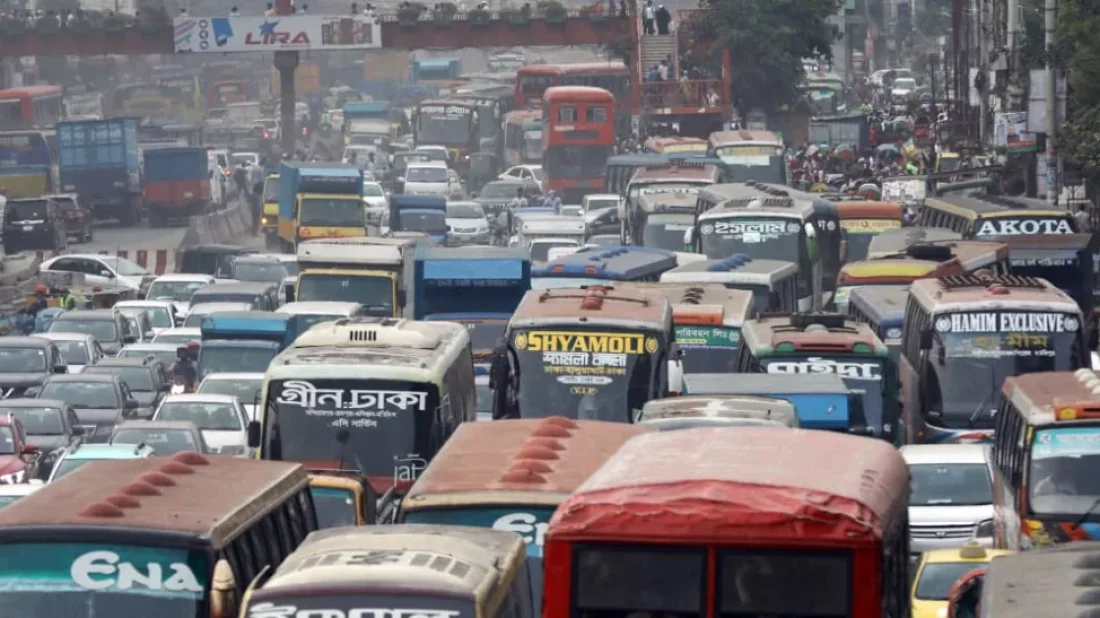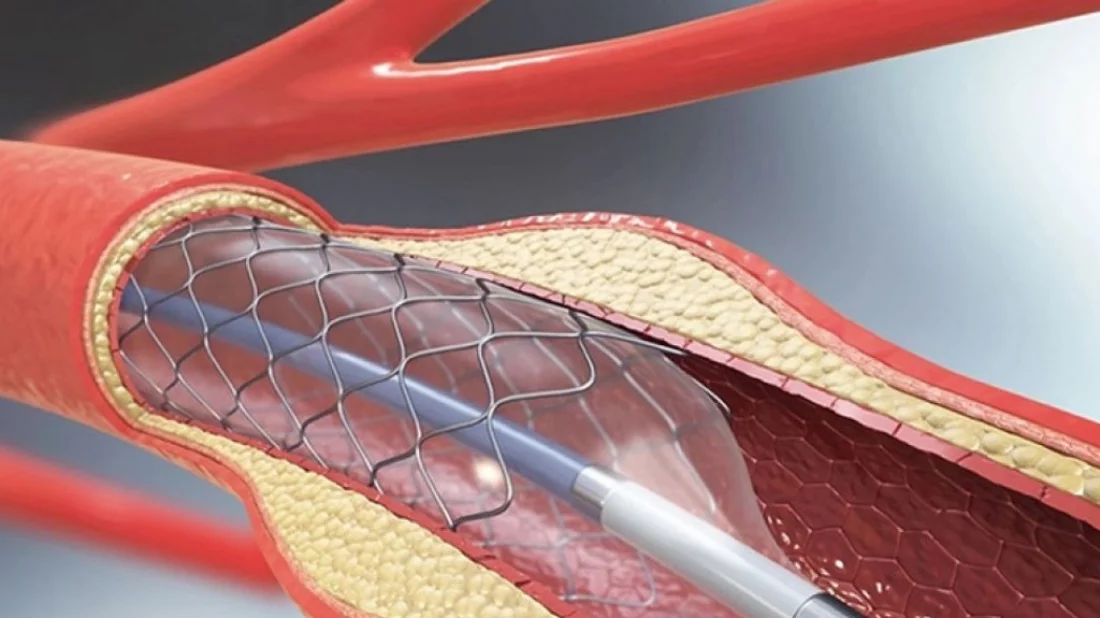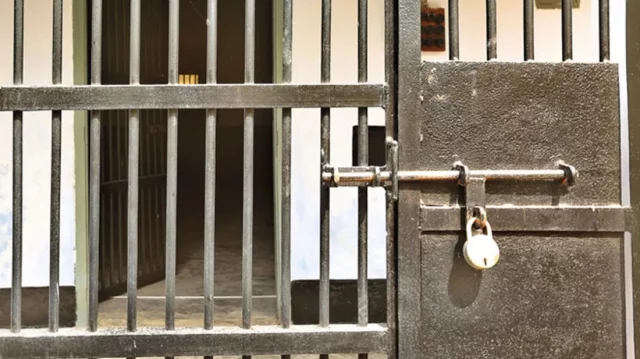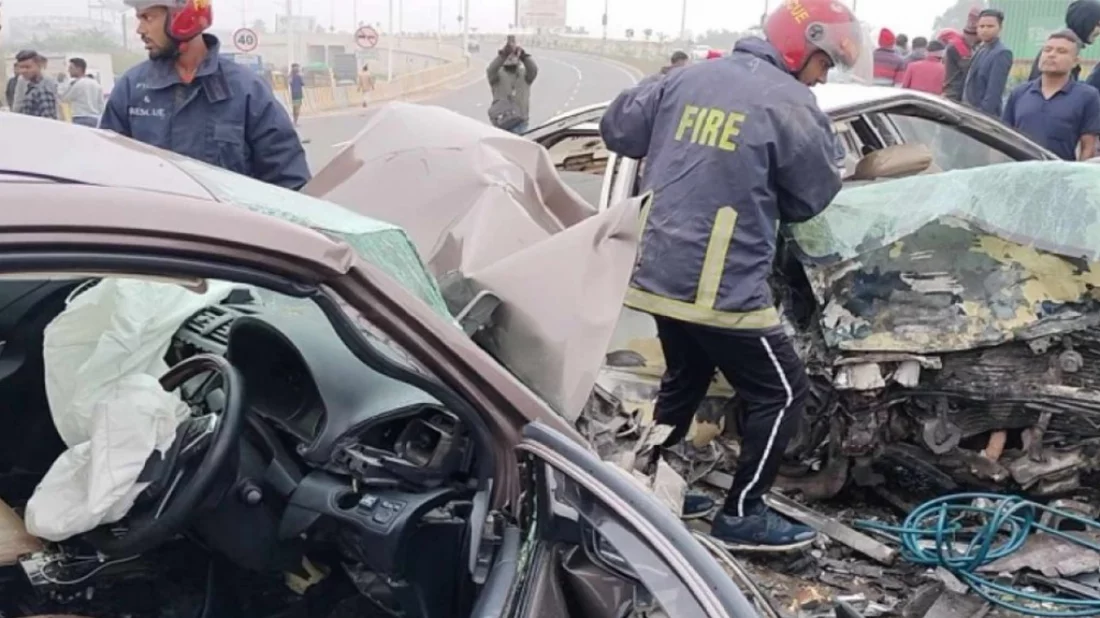
Dhaka now sees an average of 3,500 intercity passenger buses daily, a drop from the previous count of over 5,000 buses in recent years. Alongside these buses, approximately 2,000 human haulers, locally known as laguna, operate.
However, the public transport sector is plagued by extortion, with contributions being shared among political leaders, law enforcement, and transport and labour union members.
Transport owners, burdened by rising fuel prices and extortion demands, lose interest in modernizing their fleets. Passengers are left to contend with a dwindling number of ageing, often-unserviceable buses.
Sagar Hossain, a passenger coming from Jatrabari to Moghbazar, voiced his frustration saying: "In this city, we have to constantly fight to get on the bus.”
He said most of the buses that ply in such a big city are of poor quality. The entire transport sector is running with these buses year after year.
The Bangladesh Road Transport Authority (BRTA) reports the registration of 10,134 passenger buses between 2010 and 2023. However, the number of buses plying on the capital roads remain low as transport business stakeholders express discontent, citing the impact of extortion.
50L extorted daily
Every day, an estimated Tk50 lakh is siphoned off from buses and human haulers through a complex web of extortion syndicates. Public transport owners claim to pay between Tk1,000 to Tk1,200 per vehicle at various spots each day, while human haulers endure a daily fee of Tk800.
Extortion hotspots, numbering around 20, including Sadarghat, Fulbaria, Gulistan, Mayor Hanif Flyover, Paltan, Jatrabari, Syedabad Bus Stand, Mohakhali Bus Terminal, and Gabtali, are controlled by various committees and unions.
These extortion schemes operate through different strategies, such as pre-journey payments or post-trip settlements.
A waybill, serving as a receipt for payment, is mandated, and vehicles lacking the necessary signature on the waybill face restrictions on road access. At several points on their route, the bus drivers have to show the proof of their payment.
The syndicates orchestrating these extortions reportedly benefit from political and law enforcement support.
What bus owners say
Wishing to remain anonymous, a bus owner operating on the Mirpur-Demra route said: "The business has become less profitable now a days. The escalating fuel prices impose a substantial financial burden on us. This enduring issue of extortion has further compounded our challenges.”
He said: “For smaller businessmen like myself, it's a constant struggle for survival in this sector."
An owner of Raja City Bus, operating on the Mughda to Mohammadpur route, told anonymously: "I have been a longstanding transport businessman in the capital. Initially, my bus operated under the Raja City banner, but due to various issues, it now operates under different banner.
“Unfortunately, the predominant issue we face today is the rampant extortion on the roads. Paying over Tk1,000 per day takes a toll on our businesses, affecting our daily operation. Because of these extortion syndicates, traders like myself are gradually leaving this sector," he added.
Expressing widespread concern, the chairman of another bus company chairman highlighted the reluctance among businessmen to invest in the transportation industry due to prevalent road extortion. The fear of reprisals prevents many from lodging complaints against these extortion practices.
He complained: "The Dhaka Road Transport Owners Association plays a significant role in supporting these extortionists. They operate under its umbrella, utilizing the association's influence. I, personally, used to manage around 50 vehicles on one of my lines, but due to the forceful nature of extortion, I had to give up that route."
What they say
In response to allegations, Mahabubur Rahman, organizing secretary of Dhaka Road Transport Owners' Association (DRTOA), said: "A few days ago, extortion was being collected at some places in Kanchpur, Narayanganj, on the outskirts to Dhaka. We have taken the initiative to stop extortion after receiving the news. And the bus owners have been instructed not to pay any money to anyone.”
Shahidullah Sadu, general secretary of Dhaka Zila Sarak Paribahan Sramik Union, an organization accused of engaging in extortion, said: "Every organization has a few allegations against them. Everyone likes to blame every organization more or less.”
What the authorities say
Dhaka Metropolitan Police (DMP) spokesperson. Farooq Hossain told Dhaka Tribune, "If the transport owners complain to us against those who extort on the road under different names, then we will take action against the extortionists."
Bangladesh Road Transport Workers League President Md Hanif Khokon said that incidents of extortion on the road are against the labour law.
“They claim that they collect the money for the development of workers but in reality this money goes into their pockets. Not used for staff development. The government should bring the main owners of these syndicates under the law,” he added.
Bangladesh Jatri Kalyan Samity (BJKS) Secretary General Mozammel Haque Chowdhury said: “Most buses currently in operation lack passenger-friendly features. Every day, these defective buses continue to operate, through coughing up extortion money. This unfortunate situation makes everyone, including passengers, victims of the system. Consequently, transport workers resort to engaging in fare-related chaos, negatively impacting the passengers' experience."








